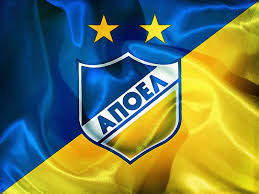
APOEL Nicosia Football Club
The APOEL Nicosia Football Club stands as a pillar of Cypriot football, threading together the rich heritage of the island’s sporting culture with tales of perseverance and triumph. Founded in 1926, this illustrious club has captivated the hearts of its fans through decades of memorable matches, unrivaled club spirit, and a relentless pursuit of excellence. Through its storied history, APOEL has not only carved out a significant niche within Cyprus but has also made waves internationally, showcasing the tenacity and prowess that epitomizes Cypriot sports.
The Origins of APOEL Nicosia Football Club: A Historical Perspective
Understanding the roots of APOEL Nicosia requires diving deep into the socio-political fabric of Cyprus during the 1920s. This era was marked by a burgeoning sense of nationalism and unity among the Greek-Cypriot community 33win.
The Foundation of the Club
In 1926, a group of passionate young men from various social and cultural backgrounds came together, motivated by a desire to promote sportsmanship and camaraderie. They established the Athletic Club of Greek Cypriots, which would soon be known as APOEL (ΑΠΟΕΛ). The name itself is a combination of the Greek words for “Athletic” and “Club,” symbolizing the club’s intentions to foster athletic talent across the island.
This grassroots initiative was not merely about football; it encompassed a wider vision of promoting physical education, cultural activities, and community engagement. The early years were challenging, as the club struggled for recognition amidst other prominent clubs in Cyprus. However, it laid the groundwork for what would become one of the most successful teams not just in Cyprus, but in Europe.
The Early Challenges
The initial challenges faced by the APOEL Nicosia Football Club were reflective of the greater societal struggles within Cyprus. Political tensions, economic instability, and social divides often translated into difficulties for recreational organizations like APOEL. Yet, these hardships instilled a fierce sense of loyalty and perseverance among its supporters, setting the stage for a passionate fanbase that would endure for generations.
As the club began competing in local leagues, player recruitment became imperative. Many young talents emerged, eager to don the iconic blue and yellow jersey. These players, driven by pride and ambition, would soon take to the field, representing more than just a club; they personified the hopes of their communities.
Shaping a Unique Identity
Throughout its formative years, APOEL worked tirelessly to establish an identity rooted in resilience and competition. Unlike some clubs that prioritized glamor or prestige, APOEL focused on cultivating homegrown talent. This emphasis on youth development meant that many of its players were natives of Nicosia or nearby towns, fostering a sense of belonging and connection that resonated deeply within the community.
Moreover, the club’s affiliation with cultural organizations allowed it to weave together sports and national identity, making every match feel like a celebration of Cypriot existence. As the years progressed, the ethos of the club—an amalgamation of sportsmanship, nationalism, and community—took shape, solidifying its status in Cypriot history.



